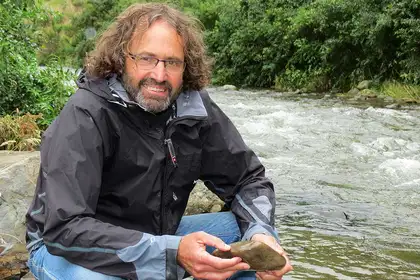
Ecologist Dr Mike Joy says the humanities and social sciences are vital in fostering new ideas, informed debate and critical thinking.
by Dr Mike Joy
Successive governments have taken the view that education is about generating a short-term profit. For years, tertiary education policy has sought to create and expand a marketplace where the learning opportunities necessary to deliver such profits are supplied and purchased.
One of the consequences of this is that subjects such as the humanities are judged by what contribution they make to increasing productivity or employability.
When students and governments focus on economic impact as the measure of what a good education looks like, they risk looking past what the humanities offer.
Today, the Tertiary Education Union (TEU) is holding a day of action across the country to highlight the advantages of teaching and learning the humanities, arts and social sciences.
The aim of the "love humanities" day was to draw attention to the enormous benefits those trained in the humanities bring to society, science and the economy.
The campaign was conceived as a response to the sustained pressure the humanities have come under over the last decade, both from funding cuts and the expansion of the education marketplace.
One reason this pressure has been brought to bear is that governments tend to ignore the fact we only learn to do things well when we learn to do them critically.
As an environmental science educator, my role is to teach students the importance of engaging in critical analysis. Education is not about rote learning. It is about developing the ability to think critically, reason and question. To be successful, a broad awareness and understanding of humanity is essential.
Teaching people to assess evidence critically and engage in debate about our future direction is the lifeblood of democracy. It requires knowledge of history, an understanding of our place in the world in relation to other cultures and the ability to imagine the kinds of future we want.
In other words, its value is not in generating profit, but it's subjectivity, an understanding of other cultures, other people and other times.
Education is not about learning to be right, but learning by thinking through ideas and testing them in debate. Traditional science-based subjects do, of course, have a vital role to play in providing evidence for such debates.
However, where science fails is its narrowing of thought and tendency to describe problems as somehow separate from complex societal systems. As such, scientific analysis is not made to answer the kinds of questions a humanities graduate with knowledge of social science, or history, or religion might ask.
The best scientists are those with a broad awareness of all aspects of humanity. In my experience, it is humanities graduates and social scientists that help us provide this bigger picture view.
After all, it is only when we engage in the philosophical, historical, literary and arts aspects of the humanities that we will truly understand what science is telling us.
With the preponderance of misinformation from government and extractive industries, the ability to question and think has never been more important. Taking the current situation in the United States as an obvious example, we can see the perils of taking hastily made decisions based on a flagrant misrepresentation of evidence.
Challenging this requires continued support for the sciences, but also teaching people the skills they need to apply scientific evidence through reasoned argument. One of the hallmarks of societal progress is the ability to stop and critically analyse what is happening around.
It is the humanities that provide these skills and we are all the richer for it.
Dr Mike Joy is a Senior Lecturer in Ecology and Environmental Science in the Ecology Group at Massey University's College of Sciences. This opinion piece was originally published in the Manawatū Standard to coincide with the TEU's Love Humanities national day of action.